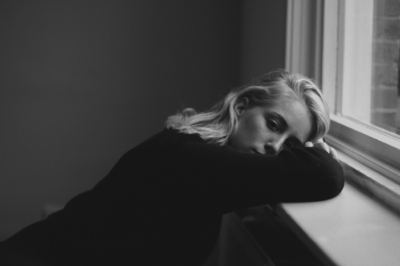
I had been called many things in my life – mother, daughter, wife, friend, fun, talkative, energetic, loyal, and even some less savory things. I had lived on this planet for 43 years and thought I had heard it all. However, on August 25, 2015, my sweet, kind doctor became the first person to ever describe me using the adjective, “incurable”. In all fairness, he was telling me that the cancer he had just diagnosed me with was incurable, not assigning me that label, but he might as well have brought in a tattoo artist to place it permanently on my forehead when he delivered the news.
I heard nothing he said after that word. Had I been able to digest it easily, I would have heard his next adjective, which was, “treatable”. On that day, and for many days after, “treatable” was no consolation for “incurable”, and very few things in life have ever weighed as heavily on me as that word. It kept me up at night and caused me to cry a river of tears. It made me believe that my children were going to be deprived of a mother in their teen and young adult years, or of a grandmother for their children. It made fear that my mother and my grandmother would have to endure the torture of losing a child and grandchild. It made me pity my husband for the fate that may lie ahead.
For a couple of months, I could barely say it, and the word itself became a plague worse than my disease. I went in for my first round of chemotherapy, crying and carrying that word on my shoulders like a ton of heavy bricks. I bore that burden through the unexpected complications of my first two treatments and my subsequent hospitalization. Somehow, in those early dark days, “incurable” became interchangeable with “hopeless”. ‘Why am I going through with all of this if I am incurable?’ I would think, as I sat in the hospital bed, watching a machine spin all of my blood to clean it of the proteins that were thickening it and making me ill.
I was tired, I was scared, and I was angry that I was incurable!
As time went on, something began to change though. I got a specialist in my disease involved, I began intellectually evaluating the data, and I realized that “treatable” was going to be the antidote to the feelings that “incurable” was causing me, after all. Science is progressing at breakneck speed, and every few months another breakthrough extends my projected lifespan, promises easier treatments if/when my numbers go up again, and (dare I dream) there are a few things out there that may even harken a cure for my disease.
I began to embrace my disease. I decided that I am going to live a long life WITH it (Please G-d). I was given a new lease on life and was then tasked with how to use “incurable” for good instead of bad. I started to network with other patients, doctors, researchers, and patient representative organizations. I began mentoring others with my disease and connecting the people I had met on this journey with each other. I went to the state capitol and Washington, D.C. to lobby for bills that not only help me, but also help all kinds of patients.
I also began re-planning the rest of my life. “Incurable” did not mean gone, and as long as I was waking up on the green side of the grass, I was going to make the most of every year, month, day, hour, and minute. I began setting short and long-term goals. Thinking of ways that I could make my life, the life of people around me, and the world a better place. “Incurable” became less and less of a burden. It became a motivator and a game-changer; a word that has improved my quality of life instead of diminishing it.
As it turns out, my journey threw me a little curve ball. What was “incurable” about me turned out to be my will, my passion, and my joie de vivre. So much more so than my disease. So, yes, I guess it is true – I really am “INCURABLE”!